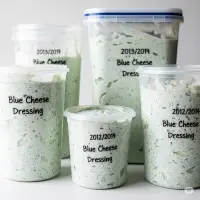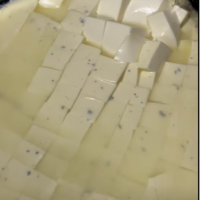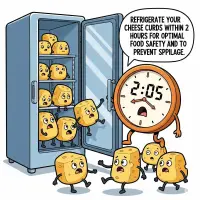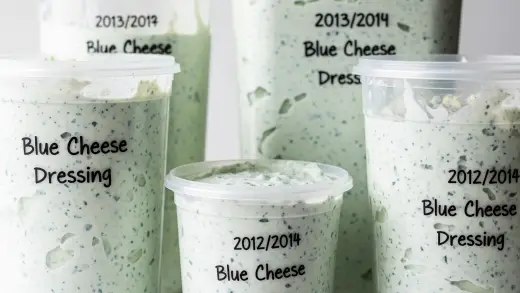Yes, you can get sick from eating expired Parmesan cheese, although it’s less likely than with softer cheeses. If you see mold, it could harbor harmful bacteria or mycotoxins.
While you can often cut small mold spots off hard cheese, if it smells off, has extensive mold, or you’re unsure, it’s best to discard it to avoid potential food poisoning.
Imagine, you’re rooting around in the back of your fridge, and behind a jar of pickles, you find it – that wedge of Parmesan cheese you bought a while ago. Your first thought is probably, “Is this still good?”
And then, the big question hits: “Can I actually get sick from eating expired Parmesan cheese?” It’s a good question, and you’re not alone in wondering!
The cool thing about Parmesan is that it’s a hard, aged cheese. Think of it like a superhero of the cheese world – it’s built to last longer than softer cheeses because it has less water where sneaky bacteria like to grow. But that doesn’t mean it lasts forever.
This article is here to help you become a Parmesan pro! We’ll explore how to tell if your cheese has gone from yummy to yucky, what could happen if you eat it when it’s past its prime, and how to enjoy this tasty cheese safely.
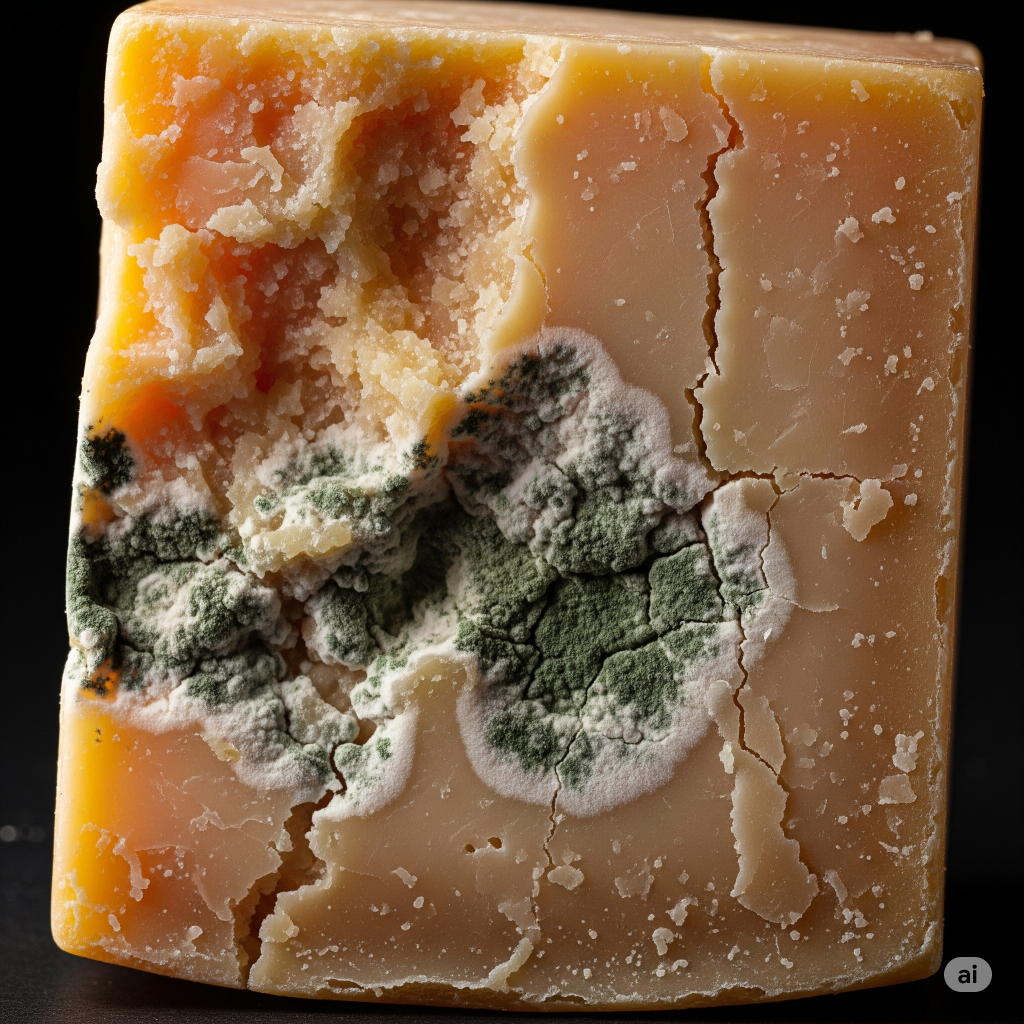
Can You Get Sick from Eating Expired Parmesan Cheese?
Yes, it is possible to get sick from eating expired Parmesan cheese if it has spoiled, though Parmesan, being a hard cheese, is more resistant to spoilage than softer cheeses. Here’s a breakdown of what you need to know:
Understanding “Expiration” Dates on Parmesan:
“Best By” or “Sell By” Dates: For hard cheeses like Parmesan, these dates usually indicate how long the manufacturer guarantees optimal quality (flavor and texture), not necessarily safety.
Due to its low moisture content and aging process, Parmesan can often be safely consumed well past this date if stored correctly.
True Spoilage: The real concern is when the cheese actually spoils due to improper storage or contamination.
Here’s How Parmesan Spoils and Potential Risks?
Mold
While some molds are used to make cheese, unexpected mold growth on your Parmesan can be an issue. For hard cheeses, you can often cut away the moldy part (about 1 inch around and below the mold) and safely eat the rest.
However, if there’s extensive mold, it’s best to discard the cheese. Some molds produce mycotoxins, which are poisonous substances that can make you very ill.
Bacteria
Spoiled cheese can harbor harmful bacteria like Listeria, Salmonella, and E. coli. Consuming these can lead to food poisoning.
Grated Parmesan
Grated Parmesan has a shorter shelf life than a block of Parmesan because it has more surface area exposed to air and potential contaminants. It’s more prone to clumping, textural changes, and spoilage.
Signs That Parmesan Cheese Has Gone Bad
- Off-Smell: If the cheese has a sour, rancid, or ammonia-like odor, it’s a strong indicator of spoilage.
- Change in Color: Significant darkening or other unusual color changes can signal that the cheese is bad.
- Undesirable Texture Changes: If the Parmesan becomes excessively dry, hard beyond its usual texture, or if grated Parmesan becomes slimy or unusually clumpy, it might be spoiled.
- Off-Taste: If the cheese tastes bitter, overly sour, or causes a tingling or burning sensation in your mouth, do not eat it.
- Extensive Mold: As mentioned, while small spots might be cut off a block, widespread mold means the cheese should be thrown out. For grated Parmesan, any sign of mold means it should be discarded.
Symptoms of Illness from Eating Spoiled Cheese
If you eat spoiled Parmesan cheese, you could experience symptoms of food poisoning, which may include:
- Nausea
- Vomiting
- Diarrhea
- Stomach cramps
- Fever
In some cases, allergic reactions or respiratory problems can occur due to mold.
While Parmesan cheese has a long shelf life, especially when unopened and stored properly in the refrigerator, it can eventually spoil.
Always inspect your cheese for signs of spoilage before consuming it, especially if it’s past its “best by” date. If in doubt, it’s always safest to discard it to avoid potential illness.
How Long Does Parmesan Cheese Typically Last?
The lifespan of Parmesan can vary quite a bit depending on its form and how it’s stored. Here are some general guidelines (always assuming proper refrigeration for opened and fresh forms):
Unopened Parmesan (Wedge/Block)
If vacuum-sealed and kept in the refrigerator, an unopened block of Parmesan can last for many months, often 7-9 months or even longer, potentially well past its “Best By” date. The low moisture content and aging process give it incredible staying power.
Opened Parmesan (Wedge/Block)
Once opened, the clock starts ticking a bit faster, but it’s still quite resilient. When properly wrapped (we’ll get to that in Section VI) and refrigerated, an opened wedge or block of Parmesan can last for about 4 to 6 weeks, sometimes longer.
The key is to prevent it from drying out too much or absorbing moisture and odors.
Grated/Shredded Parmesan
Store-Bought (in tubs or bags): This type has more surface area exposed, which means it can lose quality and potentially spoil faster than a block.
- Unopened: It can last for a couple of months in the fridge, often up to its printed date.
- Opened: Aim to use it within 1 to 2 weeks for the best quality, though some sources say it can last for several weeks if well-sealed. Always check for signs of spoilage.
Freshly Grated (at home from a block)
This is best used quickly for optimal flavor, ideally within a few days to a week when stored in an airtight container in the fridge.
It will lose its fresh aroma and can clump together more easily over time compared to store-bought versions that might contain anti-caking agents.
Shelf-Stable (Canned/Jarred) Parmesan
This is the kind you often find in the non-refrigerated aisle. It’s processed differently and often contains additives and preservatives to make it last a very long time at room temperature before opening.
- Unopened: It can last for many months, even a year or more, according to its expiration date.
- Opened: Once opened, it must be refrigerated.
It will typically last for a few months in the fridge, but always check the label for specific recommendations and look for any signs of spoilage like clumping, off-odors, or mold. Its texture and flavor are quite different from fresh Parmesan.
Safe Handling and Storage of Parmesan Cheese to Maximize Shelf Life
Proper storage is key to keeping your Parmesan fresh and tasty for as long as possible.
Proper Refrigeration:
Ideal Temperature: Keep your Parmesan in the refrigerator, ideally at a consistent temperature between 35-40°F (around 2-4°C). Some sources suggest slightly warmer, like 40-45°F (4-7°C), is also acceptable, especially for aging. The main thing is to keep it cool and stable.
Where to Store in the Fridge: The cheese drawer or crisper drawer is often a good spot, as temperatures there tend to be more stable. Avoid storing it near strong-smelling foods if it’s not well-wrapped, as cheese can absorb odors.
Wrapping Techniques (for Wedges/Blocks):
How you wrap Parmesan makes a big difference! Cheese needs to “breathe” a bit but also be protected from drying out too much or absorbing too much moisture.
Best Method
Cheese Paper or Parchment Paper First, then Loosely in Plastic Wrap or an Airtight Container:
Wrap the Parmesan first in cheese paper (ideal) or parchment paper (a good alternative). This allows the cheese to breathe and prevents moisture from building up directly on its surface.
Then, you can place the paper-wrapped cheese in a resealable plastic bag (don’t seal it too tightly, leave a little air) or an airtight container. Some people prefer a layer of aluminum foil over the parchment paper.
Avoid Storing in Just Plastic Wrap for Long Periods
Wrapping Parmesan tightly only in plastic wrap is generally not recommended for long-term storage.
While it might seem like it keeps air out, it can also trap moisture that the cheese releases, leading to a sweaty surface, potential mold growth, and an “off” or plastic-like flavor. The cheese can’t breathe properly.
If you buy Parmesan wrapped in plastic: It’s best to re-wrap it using parchment paper and then plastic or foil once you get it home and open it, especially if you won’t use it quickly.
What to Do if You Accidentally Eat Spoiled Parmesan?
It happens! Maybe you didn’t notice a small spot of mold or a slightly off taste until you’d already taken a bite.
Don’t Panic Immediately
A small amount of spoiled Parmesan, especially if it was just a tiny bit of surface mold on a hard cheese that was mostly okay, might not cause any issues for a healthy adult.
Monitor for Symptoms
Pay attention to how you feel over the next few hours to few days. Symptoms of food poisoning can include:
- Nausea
- Vomiting
- Diarrhea
- Abdominal cramps or pain
- Fever
- Headache
Also, be aware of any signs of an allergic reaction if you’re sensitive to molds (e.g., trouble breathing, rash, itching).
When to Seek Medical Attention
Most mild cases of food poisoning resolve on their own within a day or two with rest and hydration. However, you should see a doctor if you experience:
Severe symptoms
This includes frequent vomiting (unable to keep liquids down), severe or bloody diarrhea, or intense abdominal pain.
Signs of dehydration
Such as little or no urination, extreme thirst, dry mouth, dizziness, or lightheadedness.
High fever
A fever over 102°F (38.9°C) accompanied by other symptoms.
Prolonged illness
If symptoms don’t start to improve after a couple of days, or if they get worse.
Neurological symptoms
Such as blurry vision, muscle weakness, or tingling sensations (these are rare but can indicate more serious types of food poisoning).
If you are in a high-risk group
This includes pregnant women, older adults, young children, and individuals with weakened immune systems. These groups should be more cautious and may need to seek medical attention sooner.
If you suspect an allergic reaction
Especially if you have difficulty breathing or swelling.
Important Note
If you are concerned about your health after eating something you suspect was spoiled, it’s always best to err on the side of caution and contact a healthcare professional for advice.
Conclusion
Parmesan cheese is a wonderfully flavorful and remarkably resilient food, thanks to its hard texture and long aging process. It can often last well beyond its printed “Best By” date when stored correctly.
However, like all foods, it’s not invincible and can eventually spoil. The key takeaway is that relying solely on printed dates isn’t the best approach for Parmesan. Instead, trust your senses.
A careful visual inspection, a good sniff, and attention to texture are your most reliable tools for determining if your Parmesan is still safe and enjoyable to eat.
Remember the golden rule: “When in doubt, throw it out.” It’s always better to be safe than sorry.
By understanding how Parmesan is made, what the date labels really mean, and how to properly store and inspect it, you can confidently enjoy this delicious cheese while minimizing waste and keeping yourself healthy.
Proper storage and careful inspection are truly your best friends when it comes to safely savoring Parmesan.





